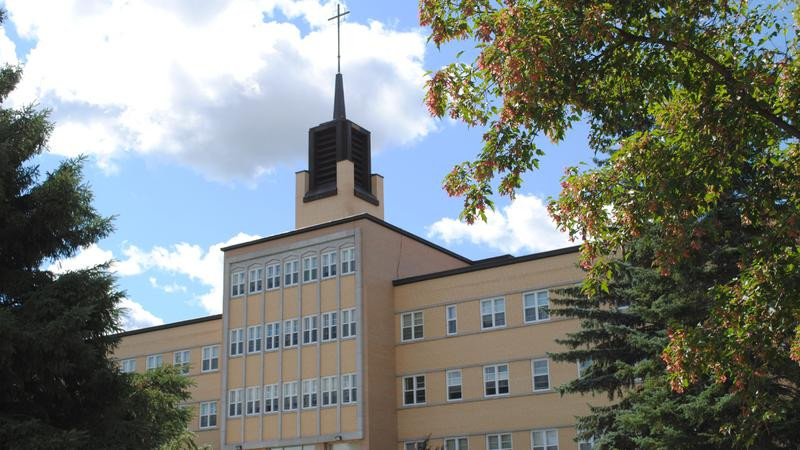New Brunswick Invests Millions in Francophone School Infrastructure
The New Brunswick government recently unveiled its 2025-2026 capital budget, revealing a significant investment of $193.7 million in school infrastructure. This substantial allocation, part of a broader $1.26 billion capital budget, includes funding for long-awaited renovations and potential new constructions for Francophone schools across the province. The budget follows years of debate and advocacy for improved educational facilities for New Brunswick's French-speaking communities.
Long-Awaited Renovations and Expansions
The budget allocates funds to revitalize several existing Francophone schools, addressing years of deferred maintenance and capacity issues. Specifically, mid-life renovations for the Polyvalente W.-Arthur-Losier in Tracadie and the Polyvalente Louis-J.-Robichaud in Shediac are officially back on track. These projects, initially stalled in 2018, are finally receiving the necessary funding. The budget also includes funds for an expansion of the École Abbey-Landry in Memramcook, reflecting the growing student population in that area. These renovations represent a crucial step in providing improved learning environments for students and teachers.
Addressing Capacity Constraints
The current infrastructure in several Francophone school districts falls short of meeting the needs of the growing student populations. Existing schools often lack the capacity to accommodate all students, leading to overcrowding and suboptimal learning conditions. The renovations and expansions outlined in the budget aim to alleviate these capacity challenges, creating more space and resources for students.
Planned New Constructions and Uncertainties
Beyond renovations, the budget proposes a significant step toward addressing the long-standing need for new Francophone schools. The government has announced plans to conduct studies to determine the size and location of two new Francophone schools in the St. Stephen-St. George and Sussex-Hampton regions. This initiative represents a potential shift in addressing the needs of Francophone communities in areas where school infrastructure is lacking. However, these are still just feasibility studies, and the construction timeline remains unclear. The government's commitment to these projects remains uncertain, as the budget only allocates funding for the initial studies.
Ongoing Controversy and Legal Action
The issue of school infrastructure in New Brunswick has been embroiled in controversy for years. The previous government's decisions to halt several projects sparked outrage, and the current government faces ongoing legal challenges from the South Francophone School District, which argues the province has underfunded the construction of Francophone schools. The inclusion of these studies in the budget is a step towards addressing the growing concerns about school capacity for Francophone communities, but whether it will adequately satisfy these concerns remains to be seen. The legal battles raise concerns about the equitable distribution of resources for French-language education. The budget's impact on resolving these outstanding legal disputes is yet to be seen.
A Mixed Reaction to the Budget
The budget's allocation for school infrastructure has been met with a mixed reaction. While many welcome the investment in renovations and potential new constructions, some remain skeptical about its overall impact. Former Education Minister Bill Hogan, for instance, questioned the prioritization of new schools in areas with relatively small Francophone populations, suggesting that increasing capacity in existing schools in areas like Saint John might be a more pressing need. He argued that the current system has many schools that are lacking space. This reflects the ongoing debate on how to best allocate limited resources for educational infrastructure. The budget allocation is being hailed by many as a positive step to address the ongoing infrastructural challenges in the province.
Others, such as the Green Party’s Megan Mitton, expressed cautious optimism, emphasizing the need for more transparency and information regarding the decision-making process behind these investments. While she acknowledged that the budget was a positive step, she also voiced concern about the lack of significant investment in public transportation. She stressed the ongoing need for infrastructure improvements and questioned the government’s ability to execute on its promises. The government's plan to simplify the complex analysis used to prioritize projects is also welcomed by many.
A Step Forward, But More Needs To Be Done
The New Brunswick government's 2025-2026 budget represents a significant step toward addressing the long-standing need for improved school infrastructure, particularly for Francophone communities. The $193.7 million investment in school renovations and potential new constructions signifies a commitment to improving the educational landscape of the province. However, the budget’s success hinges on effective implementation and resolution of the ongoing controversies surrounding resource allocation and equitable access to quality education. Whether this budget is enough remains to be seen. The journey towards providing adequate and equitable educational infrastructure for all students in the province is an ongoing one. This budget represents a crucial step in this journey.

















